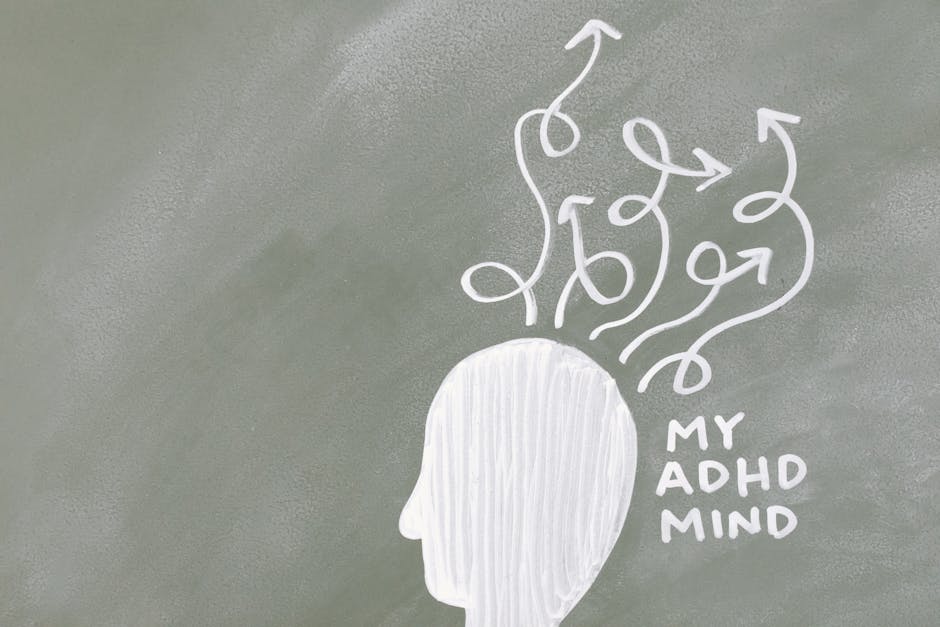Unlocking Freedom from the Deprivation Mindset: A New Era of Healthy Eating
Breaking a deprivation mindset requires practical strategies that protect Health while honoring cravings and nourishment; start by reframing restrictive language and focusing on sustainable meal planning and nutritional balance that support well-being. Clinical evidence shows chronic conditions linked to Dieting advice and Food restrictions often worsen when people oscillate between deprivation and overeating, so emphasize mindful eating and a balanced diet with whole foods and nutrient-rich foods to reduce Inflammation and improve Gut Health Protocol outcomes. Integrate portion control, meal planning, and mindful relationship with food to avoid all or nothing thinking and yo-yo dieting cycles; a clear exercise plan and supportive community can reduce anxiety and feelings of failure to progress. For practical online tools and curated resources on habit resets, consult comprehensive airdrop and crypto resources which also provide community-driven support examples for owning decision and reset habits across lifestyle changes.

Illustration of balanced plate with whole foods proteins vegetables fruits and mindful portioning cues for practical meal planning guidance
Journey to Joyful Nutrition: Ditching the Dieting Truth
A joyful approach to nutrition centers Health and pleasure, not punishments; begin by identifying your eating pattern and reframing deprivation mindset into sustainable enjoyment of wholesome and satisfying meals. Implement practical meal planning that blends vitamins, minerals, proteins, and fats into whole food meals to support nutritional balance and reduce tendencies toward disordered eating and binge episodes after restriction. Use mindful eating techniques to distinguish emotional hunger from physical hunger, and apply portion control and supportive individuals to reduce guilt and shame associated with cheat foods. Case studies show individuals who adopt mindful relationship with food report better health outcomes and fewer cravings, lower Obesity risk, and improved Digestive Issues management. For actionable design of meal prep systems and digital tools that help track dietary habits and Eating Habits sustainably, explore custom web design and development for tailored platforms that improve adherence and accountability while avoiding diet deprivation traps.

Visual roadmap showing weekly meal planning steps ingredients shopping cook and mindful eating practice for sustainable change
Understanding the Cycle of Diet Deprivation and Weight Loss
Understanding the cycle of deprivation, crash dieting, and weight regain requires examining physiological responses to restrictive dieting and the psychology of scarcity; deprivation increases intense cravings and overeating, leading to weight fluctuation and yo-yo dieting that undermine long-term Health. Science-backed insights highlight metabolic adaptations, hormone-driven hunger cues, and the role of ultra-processed foods in driving overeating; addressing these with nutrient-rich foods, balanced diet principles, and a focus on sustainable meals reduces relapse risk. Practical steps include implementing a 5-day detox of whole food meals to reset habits, employing a Gut Health Protocol where appropriate for Leaky Gut Syndrome or Digestive Issues, and engaging in mindful eating exercises that reframe relationship with food from punishment to nourishment. Clinicians recommend collaborative goal setting with a dietitian to integrate dietary preferences and meal planning strategies that avoid Fad diets and Food restrictions causing depletion and sabotage.
Detailed schematic of metabolic adaptation craving cycles showing hunger hormones exercise sleep and nutritional inputs impacting weight
Navigating the 'biggest loser' Mentality
The 'biggest loser' mentality prioritizes short-term dramatic results at the expense of Health and sustainable habits, often causing deprivation and subsequent weight regain; reframing metrics toward functional wellness and energy levels fosters long-term success. Start by replacing public weigh-ins with measures like strength gains, sleep quality, and blood markers to reduce shame and support a positive relationship with food. Use incremental meal planning, balanced diet approaches emphasizing whole foods, and mindful eating to rebuild trust in food and reduce diet deprivation triggers. Behavioral strategies include self-awareness exercises, journaling emotional eating patterns, and designing an Eating Plan that allows occasional indulgences to prevent cheat foods from triggering binge cycles. Clinical examples show patients avoiding disordered eating by adopting gradual dietary changes rather than cessation of favorite foods.

Comparative chart showing outcomes of crash diets versus sustainable behavior change focusing on energy sleep and metabolic health
Essential Factors for Sustainable Eating
Sustainable eating depends on multiple factors: nutritional balance, social support, realistic meal planning, and addressing barriers like sedentary behaviour or limited time to cook. Prioritize vitamins, minerals, proteins, and fats within a well-balanced diet that reduces Inflammation and supports chronic conditions management; incorporate whole foods and plant-forward meals to improve Gut Health Protocol outcomes and mental Health. Set up weekly systems—batch cooking, grocery lists, and scheduled meals—to avoid relying on ultra-processed options or Starbucks latte routines that can undermine goals. Tactics include using evidence-based portion control, rotating nutrient-dense recipes, and building Bezzy communities or peer groups for accountability. Track progress with practical metrics such as consistent sleep, reduced cravings, and improved digestion rather than rapid weight loss to avoid deprivation and yo-yo patterns.

Infographic of sustainable eating pillars weekly meal batch cook shopping prep portion control and social support elements
Embracing a Sustainable Eating Plan: Your Wellness Journey Starts Here
Embracing sustainability in an Eating Plan begins with a realistic audit of current dietary habits, identifying moments of deprivation and emotional eating patterns, then setting incremental goals for balanced diet changes, including whole foods and nutrient-rich foods. Establish practical rituals like weekly meal planning, cook sessions, and mindful relationship with food practices to reduce guilt and shame and to build a positive food relationship that supports mental and physical health. A dietitian-guided plan that integrates Gluten Elimination only when clinically indicated, low FODMAP options for sensitive guts, and gradual reductions of ultra-processed foods can improve Digestive Issues and reduce Inflammation. Use resources and structured programs to manage accountability without harsh restrictions; this approach reduces the likelihood of food sabotage and the all or nothing mindset. Incorporating regular exercise, stress mitigation, and proper sleep rounds out lifestyle changes that improve Health outcomes and create a healthy lifestyle.
Photograph of a weekly meal prep session with whole food meals containers labeled recipes and portion sizes for practical reference
Redefining Food Choices for Mental and Physical Health
Redefining food choices means aligning meals with both taste and physiology: combine satisfying textures with nutrient-rich foods to reduce cravings and prevent deprivation-driven overeating. Swap high-calorie foods and ultra-processed snacks for flavorful whole food alternatives that still satisfy—e.g., roasted chickpeas for crunch and avocado toast with protein for satiety. Address the relationship with food by practicing mindful eating, savoring flavors, and distinguishing emotional hunger from physiological cues; this improves the eating pattern and reduces disordered eating risks. Quantify changes with small experiments—track how substituting one meal per day with a well-balanced alternative affects energy, sleep, and digestion over two weeks—and use that data to refine dietary habits. Community-based support and coaching can increase adherence and resilience when faced with social pressure or dining out scenarios.
Close-up of balanced bowl combining grains legumes vegetables herbs olive oil and lemon for satisfying nutrient-dense meal inspiration
Essential Factors for Sustainable Eating
Prioritizing health beyond weight reduces unhealthy fixation on short-term weight loss and shifts focus to durable outcomes like improved energy, metabolic markers, and quality of life. Addressing deprivation and the toxic relationship with food reduces psychological strain, lowers the incidence of Eating disorder treatment need, and decreases risk of long-term weight cycling that exacerbates Obesity and chronic conditions. Emphasize whole foods, balanced diet principles, and consistent meal patterns to support microbiome diversity and reduce Inflammation; practical steps include increasing fiber, incorporating fermented foods, and ensuring adequate protein to promote satiety. By reframing success metrics, people sustain healthy lifestyle choices and report better well-being and reduced anxiety about food choices. Health professionals recommend combining nutritional guidance with behavioral strategies to achieve lasting change.
Montage of improved lifestyle indicators showing sleep energy lab markers reduced inflammation and diverse whole foods on a table
The Current State of Deprivation: Why Traditional Diets Fail
Traditional diets often fail because they rely on rigid rules and food restrictions that create deprivation, leading to cravings, binge episodes, and eventual weight regain; psychological mechanisms and metabolic adaptation drive this cycle. Statistical analyses reveal high relapse rates with Fad diets and extreme calorie cuts, and real-world cohorts show that sustainable, moderate changes produce better long-term Health outcomes. Underpinning failures include social pressure, lack of meal planning, and ignoring underlying emotional eating patterns, which foster a toxic relationship with food and increase risk for disordered eating. Solutions focus on nutritional balance, mindful eating education, and flexible Eating Habits that incorporate occasional indulgences without guilt, preventing shame and sabotage. Clinicians advocate for individualized plans, addressing Sleep, stress, and sedentary behaviour alongside dietary adjustments to optimize health outcomes and prevent the disappointment and cessation commonly seen in diet deprivation contexts.

Graph showing relapse rates for fad diets versus adherence rates for flexible balanced diet programs across twelve months
Background on Diet Management and Weight Management
Effective diet management integrates nutritional science, behavioral psychology, and personalized coaching: it balances macronutrients, aligns caloric needs with activity levels, and tailors dietary preferences to improve adherence and reduce deprivation-induced overeating. Research highlights the importance of protein and fiber for satiety, the role of unsaturated fats in metabolic health, and vitamins and minerals to support cellular function; combining these insights with meal planning yields measurable Health improvements. A clinician-driven approach screens for Digestive Issues, Leaky Gut Syndrome, or other chronic conditions that may require targeted Gut Health Protocols or Gluten Elimination. Practical frameworks include structured Eating Plans with progressive habit-building steps, education on Hunger cues, and strategies for managing social pressure and emotional hunger. Tracking objective metrics such as blood glucose, strength milestones, and mood helps pivot strategies and avoid yo-yo dieting.
Flowchart of personalized diet management process including assessment planning implementation tracking and adjustment over time
A Review of Past Approaches to Healthy Eating
A historical review shows cycles from low-fat fads to extreme carbohydrate restriction and back to balanced diet advocacy; many past approaches failed due to dogma rather than evidence, leading to confusion and diet deprivation among the public. Evaluations of past programs reveal common pitfalls: overemphasis on rapid weight loss, neglect of meal planning, and limited attention to psychological drivers of eating habits. Modern approaches prioritize nutrient density, sustainable Eating Habits, and an emphasis on whole foods to reduce Inflammation and support long-term Health. Incorporating mindful eating, portion control, and realistic behavioral goals avoids the pitfalls of past models and improves adherence. Case studies demonstrate improved outcomes when dietary systems include education, peer support, and small, measurable habit changes rather than dramatic restrictions.

Timeline infographic mapping diet trends low fat low carb paleo keto to modern balanced whole food approaches with outcomes
Mastering Mindful Eating: 3 Tips for Balanced Eating & Anti-Deprivation Diet
Mastering mindful eating starts with three actionable tips: 1) Establish consistent meals to stabilize blood sugar and reduce cravings, 2) Practice sensory-focused eating—note taste, texture, and satiety—and 3) Plan balanced plates emphasizing proteins, fiber, and unsaturated fats to sustain fullness. These steps combat deprivation mindset by normalizing regular, nourishing meals and decreasing the urge to overindulge. Real-world metrics show that consistent meal timing reduces binge episodes and supports weight maintenance, while mindful techniques improve the relationship with food and lower emotional eating. Include practical instructions: set a 20-minute eating window per meal, log hunger cues before and after eating, and design one-week meal rotations that simplify grocery lists and encourage cooking for nutrient-rich foods. For digital tools that streamline habit adoption and behavioral tracking, consult platforms focused on habit-building and community accountability to amplify progress.
Three-panel visual guide showing consistent meals sensory mindful eating and balanced plate composition with measurement cues and timing
Revolutionary Approaches to Eating Moderation and Weight Loss
New approaches to moderation shift from restriction toward calibrated flexibility: intermittent adherence models, cyclical meal variety, and emphasis on habit stacking create resilience against diet deprivation. These strategies use small, repeatable wins to counter the all or nothing mentality and reduce the psychological drivers of overeating. Clinical trials show that moderation-focused interventions produce better long-term weight maintenance compared with severe caloric restriction, and participants report improved mental Health and reduced anxiety around food choices. Practical methods include building an Eating Plan that alternates higher and lower-calorie days, integrating planned 'savour flavors' meals to reduce cheat foods compulsions, and gradually increasing whole food meals. For organizations developing programs that scale these methods into supportive Bezzy communities, case implementation resources are available to guide program design and digital engagement.
Illustration of moderation spectrum showing flexible eating days cycle planning and psychological support reducing deprivation behaviors
Understanding the Core of Anti-Deprivation Diet Principles
At the core of anti-deprivation principles is restoring a positive food relationship by eliminating rigid restrictions and replacing them with predictable, nourishing choices that honor both physiology and pleasure. This includes incorporating nutrient-rich foods, maintaining consistent meals to regulate hunger cues, and using mindful eating to decrease emotional hunger. Specific tactics involve gradual elimination of ultra-processed foods, focusing on whole foods, and implementing a Gut Health Protocol only when clinically necessary to address Digestive Issues and Leaky Gut Syndrome. Emphasize vitamins, minerals, proteins, and fats in balanced proportions to ensure nutritional adequacy and avoid deficiencies that drive cravings. Case evidence supports better weight stability when clients avoid extreme deprivation and instead practice ownership of decision-making around food, shifting from guilt to empowerment.
Diagram of core principles showing food positivity meal consistency mindfulness and nutrient adequacy with behavioral checkpoints
Essential Factors for Sustainable Eating
Savoring balance combines sensory enjoyment with nutritional strategy: pair satisfying flavors with protein and fiber to enhance satiety while preserving pleasure. Techniques include adding herbs and spices to reduce perceived monotony, balancing textures to improve satisfaction, and deliberately pausing between bites to reassess fullness signals. This approach reduces overeating driven by deprivation and helps in creating wholesome and satisfying meals that support mental and physical Health. Apply practical metrics: track post-meal fullness on a 1–10 scale, and adjust portion sizes and macronutrient composition accordingly. Incorporate occasional indulgent foods in controlled portions to prevent feelings of unfairness or disappointed progress and to support sustainable adherence.

Close-up of plated meal demonstrating protein fiber vegetable proportion herbs and lemon slice for enhanced flavor enjoyment
Important Factors: How Much to Eat for Optimal Nutrition
Determining how much to eat requires calculating individual energy needs based on basal metabolic rate, activity levels, and health goals; use evidence-based tools to estimate caloric needs and adjust for weight maintenance or loss. Focus on macronutrient distribution—adequate protein to preserve lean mass, healthy fats for hormonal health, and fiber-rich carbohydrates to support digestion and stable energy. Avoid extreme deficits that provoke Diet Deprivation and metabolic slowdown; instead aim for moderate calorie reductions with nutrient-dense choices to minimize hunger and sustain performance. Practical examples: for many adults, protein targets around 1.2–1.6 g/kg support satiety and recovery, while unsaturated fats should comprise a portion of caloric intake for cardiovascular Health. Regular reassessment with a dietitian ensures personalized adjustments and prevents the pitfalls of Fad diets.
Calculation worksheet showing energy expenditure steps protein targets portion sizes snack examples and adjustment schedule for personalization
Analysis of the Deprivation Mindset: Breaking Free with Mindful Eating
Dissecting the deprivation mindset reveals cognitive distortions—black-and-white thinking, catastrophizing small setbacks, and externalizing blame—that feed disordered Eating Habits. Break the cycle using cognitive reframing, self-awareness practices, and behavioral experiments such as intentionally allowing small portions of previously forbidden foods to extinguish their power. Mindful eating practices build interoceptive awareness to distinguish physical hunger from emotional cues, reducing anxiety-driven snacking and improving health outcomes. Integrate measurement: track episodes of overeating, note triggers, and implement alternate coping strategies like brief walks or breathing exercises when emotional hunger surfaces. Collaborate with a dietitian or therapist for Eating disorder treatment when necessary; prevention is best achieved by building a healthy relationship with food before patterns become entrenched.

Conceptual image of brain and plate illustrating cognitive reframes hunger cue awareness and mindful decision pathways during meals
Critical Elements of a Nutritious Diet for Weight Management
Critical elements include energy balance, macronutrient adequacy, micronutrient sufficiency, and meal timing that aligns with lifestyle. Prioritize lean protein sources to preserve muscle, fiber to regulate digestion and hunger cues, and healthy fats for cellular function; incorporate whole foods and minimize ultra-processed options to improve satiety and reduce Inflammation risk. Address specific needs such as Gluten Elimination or low FODMAP strategies for those with digestive sensitivities under professional guidance. Practical tips: plan protein at each meal, include vegetables that provide micronutrients, and maintain hydration to prevent misattribution of thirst for hunger. Regular monitoring of weight trends, body composition, and subjective energy supports adjustments that avoid deprivation and support steady progress.

Plate composition diagram labeling protein fiber healthy fats vegetables and portion estimates for balanced weight management
Best Practices: Making Healthier Foods Your Go-To
To make healthier foods the default, redesign the environment: keep nutrient-rich snacks visible, batch-cook whole food meals, and remove tempting ultra-processed items from immediate reach. Swap convenience habits like a daily Starbucks latte for homemade alternatives with controlled portions of sugar and fat to reduce excess calories. Educate household members about shared meal strategies and involve supportive individuals to create a household norm favoring healthy eating. Behavioral economics tools—pre-commitment, default options, and small rewards—improve adherence and reduce the temptation to revert to deprivation-driven choices. Case examples show that environment redesign combined with simple recipes increases healthy eating journey consistency and reduces the frequency of cheat foods triggering overeating.
Kitchen scene showing labeled containers healthy snacks prepped meals recipes on tablet and visible shopping list encouraging healthy defaults
Implementing a Sustainable Eating Strategy: Your Diet Moderation Guide
Implementing a sustainable strategy means operationalizing moderation into daily routines: set achievable meal goals, use weekly meal planning, and build quick whole food meals to prevent reliance on ultra-processed choices. Emphasize consistency over perfection—if a meal deviates, resume the plan without self-punishment to avoid the deprivation-sabotage cycle. Include periodic skill-building such as learning to cook simple balanced recipes and refining portion control. For athletes or active adults, integrate snack strategies around training to preserve performance and avoid overeating later. Technology can help: habit-tracking apps, community support groups, and templated shopping lists reduce decision fatigue. To support program development, some providers offer turnkey solutions and case frameworks for scaling moderation programs in community settings.
Visual checklist depicting steps to implement sustainable eating weekly planning shopping prep cooking storage and habit tracking tools
Step-by-Step Process for Adopting a Balanced Diet
Adopting a balanced diet begins with assessment: log current meals and identify deprivation triggers, then prioritize replacing the most problematic items with nutrient-rich swaps. Next, design a 4-week phased plan: week one focuses on consistent meals and added vegetables, week two increases protein and fiber, week three reduces ultra-processed items, and week four emphasizes mindful eating and portion control. Incorporate measurable checkpoints like energy levels, sleep quality, and digestion, and adjust based on outcomes. Practical tools include template grocery lists, simple recipes for whole food meals, and cooking techniques that increase enjoyment and reduce time burden. Engage a dietitian for personalization, and use community accountability to reduce relapse.

Four-week calendar showing daily goals grocery list recipe rotation and habit check boxes for monitoring progress
How-to: Incorporate Lean Protein and Unsaturated Fats
To incorporate lean protein and unsaturated fats, plan each meal around a protein source (e.g., fish, poultry, legumes) and add healthy fat through olive oil, nuts, or avocados to enhance satiety and nutrient absorption. Aim for a palm-sized protein portion per meal and a thumb-sized fat portion to balance energy density. For vegetarian diets, combine complementary proteins and include seeds and legumes. Cooking techniques like grilling, baking, and sautéing with minimal added saturated fat preserve flavor while protecting Health. Practical recipe swaps—Greek yogurt for cream, grilled salmon for fried options—demonstrate how simple shifts retain indulgence while improving nutritional balance. Tracking immediate effects on satiation and energy helps refine portion sizes to reduce deprivation and prevent overeating later.
Recipe cards showing grilled salmon quinoa salad avocado olive oil dressing portion guide and cooking times for simplicity
Why This Matters: Beyond Just Losing Weight
Common challenges include compensatory behaviors after restriction and substitution traps like diet soda that may perpetuate cravings and a deprivation mindset; although low-calorie beverages reduce sugar, they can maintain sweet taste preferences and trigger appetite in some individuals. Address weight gain proactively by monitoring overall caloric balance, increasing protein and fiber intake to manage hunger, and replacing diet sodas with flavored sparkling water or herbal teas to reduce sweet cues. Behavioral strategies include setting limits for social eating occasions, pre-planning meals when travel or events are expected, and using portion control techniques to avoid overeating. Regularly revisiting goals and celebrating non-scale victories reduces disappointment and reinforces sustainable changes.

Comparison visual of beverage choices including water sparkling options herbal teas and typical diet soda cans with pros cons labels
Embracing a Sustainable Eating Plan: Your Wellness Journey Starts Here
Advanced techniques focus on functional wellness—honoring the body's cues, improving mobility, and optimizing nutrition for performance rather than purely aesthetic goals. Use strength training to preserve lean mass, complementing nutritional strategies that ensure adequate protein and micronutrients. Address social determinants of health and work on sedimentary behaviour reduction to improve long-term outcomes. Tailor interventions to chronic conditions; for example, individuals with type 2 diabetes require focused meal timing and carbohydrate quality considerations, while those with Digestive Issues may need low FODMAP options. Adopt a strengths-based approach to body honoring that fosters self-compassion and reduces the punitive cycle associated with deprivation. Integrate telehealth or specialist input when necessary for precision care.

Athlete performing resistance exercises with nutrition coach reviewing meal plan recovery and mobility exercises for functional wellness
Redefining Food Choices for Mental and Physical Health
Harness plant-based ingredients strategically: legumes, whole grains, nuts, and seeds provide fiber and protein scaffolding that enhances satiety and supports gut microbiome diversity. Use herbs, acid (lemon, vinegar), and umami-rich ingredients to create deeply satisfying flavors that reduce cravings for high-calorie foods. Rotate plant proteins with animal proteins to diversify nutrients and maintain enjoyment. Consider fermented foods and prebiotic-rich vegetables to support Gut Health Protocol objectives and reduce Inflammation. Practical advice: experiment with spice blends, batch-cook versatile legume bases, and make nutrient-dense dressings to elevate simple salads into fulfilling whole food meals.

Colorful assortment of legumes grains nuts seeds herbs and fermented vegetables arranged with recipe notes and flavor pairings
Why This Matters: Beyond Just Losing Weight
Optimization for those with sensitivities includes low FODMAP strategies that improve digestibility while preserving variety; choose tolerated vegetables and adjust recipes to maintain nutrient density. Salad dressings can be optimized by using emulsified olive oil with acid, mustard, herbs, and a controlled sweetener to avoid excess sugars found in commercial options. Homemade dressings enable control over sodium and additives, improving Digestive Issues and reducing Inflammation. For pragmatic implementation, prepare dressings in bulk, label for reuse, and pair with salad kits that include protein and healthy fats for balanced meals. Monitor symptom response and adjust based on individual tolerance and clinician guidance.

Assortment of homemade salad dressings jars labeled ingredients low FODMAP options and pairing suggestions for balanced salads
Real-World Success: Case Studies in Anti-Deprivation Diet & Healthy Eating
Real-world case studies illustrate how anti-deprivation strategies yield durable outcomes: a community program reported 60% improved adherence at six months when participants replaced strict rules with flexible meal templates, practical cooking classes, and peer support. Another clinic-based trial combining mindful eating training and incremental meal planning reduced binge episodes by 45% and improved metabolic markers over 12 weeks. These examples highlight the importance of addressing psychological drivers, providing culinary skill-building, and integrating measurable goals like improved sleep and reduced Inflammation to sustain Health. For organizations seeking partnership models to scale community engagement and support, media and outreach channels provide templates to disseminate success stories and bolster participation; for example, exploring sports and event engagement platforms can broaden reach effectively. For further outreach collaboration examples, see sports analytics and training platform that illustrates community engagement tactics transferable to health programs.
Collage showing community cooking class participant testimonials pre post metrics and program engagement charts over time
Success Stories: Transforming Lives Through Balanced Eating
Success stories often share common elements: a shift away from deprivation, incorporation of enjoyable whole food meals, and development of supportive routines that prevent relapse. One longitudinal program reported participants moving from chronic dieting to steady weight maintenance and improved mood by focusing on meal planning, gradual habit changes, and weekly cooking sessions. Another individual case detailed how reframing cheat foods reduced anxiety and enabled sustainable intake patterns, improving relationships and physical Health. These narratives emphasize the role of social support and skills like cooking and mindful eating in producing durable change. Sharing stories within Bezzy communities or small groups enhances collective learning and reduces isolation.
Portrait series of individuals before and after behavior change showing lifestyle shifts meal prep scenes and improved activity engagement
Lessons Learned: Avoiding the 'biggest loser' Pitfalls
Lessons learned include avoiding extreme public comparisons, preventing shame-based motivation, and rejecting zero-sum approaches that encourage drastic short-term measures. Programs succeed when they prioritize autonomy, incremental habit change, and non-weight metrics such as mobility and metabolic markers. Facilitate skill development in cooking and meal planning to reduce dependence on restrictive prescriptions and foster a healthy relationship with food. Encourage maintenance strategies like occasional check-ins, flexible Eating Plans, and community support to reduce relapse risk and promote long-term Health.

Workshop scene showing small group discussion reflective exercises behavior modification planning and meal prepping demonstrations
Contact for Personalized Nutrition Guidance
For individualized guidance, connect with credentialed professionals—registered dietitians and clinicians—who assess medical history, dietary preferences, and psychosocial context to design tailored Eating Plans. Personalized care can include Gut Health Protocol assessments, Gluten Elimination when indicated, and integrated approaches to treat Digestive Issues or chronic conditions. Telehealth expands access to specialized care, allowing for structured follow-ups, iterative meal planning, and real-time problem solving. When seeking a provider, verify credentials, look for evidence-based frameworks, and evaluate compatibility with your lifestyle and values to ensure sustainable changes. Practical next steps: prepare a 7-day food diary, list medications and symptoms, and set measurable short-term goals to maximize the value of initial consultations.
Telehealth nutrition consultation screenshot showing dietitian reviewing food diary biomarkers and individualized plan checklist
Future Trends in Wellness Topics and Sustainable Eating
Future wellness trends emphasize personalization through genetics, microbiome profiling, and AI-enabled meal planning to optimize Health outcomes while minimizing deprivation. Predictive analytics will guide tailored meal compositions that respect dietary preferences and medical needs, improving adherence and reducing trial-and-error. Telehealth integration increases access to behavioral support and specialist care, and community platforms will expand peer-led Bezzy communities for accountability. Sustainability concerns drive interest in plant-forward diets, reducing ultra-processed supply chains while maintaining enjoyment and satiety. These trends present opportunities to scale evidence-based programs and measure long-term impacts on chronic conditions and public health metrics. Stakeholders should prioritize equitable access and guard against commercialization that promotes Fad diets.
Futuristic dashboard displaying personalized nutrition recommendations microbiome data activity metrics and community support integration
Emerging Developments: The Role of Telehealth in Health Conditions
Telehealth is transforming management of chronic conditions by providing remote dietary counseling, monitoring of biomarkers, and behavioral coaching that address deprivation cycles and disordered Eating Habits. Virtual platforms enable frequent touchpoints, rapid iteration of meal plans, and integration of wearable data to optimize activity and meal timing. Evidence supports telehealth’s effectiveness in improving diabetes management, weight stabilization, and mental Health outcomes by enhancing access to multidisciplinary teams. Regulatory advances and reimbursement expansion will continue to accelerate adoption, but quality assurance and clinician training remain priorities to ensure consistent standards of care. For event-driven outreach and content distribution that supports remote engagement, consider multimedia channels that amplify success stories and program resources.
Clinician providing remote consultation to patient using laptop telemonitoring blood glucose and shared meal plan documents
Predictions: The Rise of the Nutritious Lifestyle Beyond Deprivation
Predicted shifts include broader acceptance of balanced, pleasure-focused eating as normative, reduction in stigma around weight, and better integration of food systems to support accessible whole foods. As technology personalizes recommendations and community models demonstrate improved retention, the cultural narrative will move away from deprivation toward long-term Health and wellbeing. Emphasis on culinary skill-building, equitable access to nutrient-rich foods, and robust mental health support will reduce the prevalence of disordered eating and improve public health outcomes. Organizations should plan to align messaging with science-backed insights to prevent resurgence of harmful dieting trends.

Visionary collage showing community gardens cooking classes digital nutrition apps and diverse populations embracing nutritious lifestyles
Embrace a Nutritious Lifestyle: Beyond Deprivation for Lasting Weight Management
Embracing a nutritious lifestyle requires a long-term commitment to habits that prioritize Health, enjoyment, and practicality rather than short-term deprivation. Integrate balanced diet principles, regular meals, and mindful eating to reduce the cycle of craving and overeating; include whole foods, nutrient-rich foods, and periodic reassessments to tailor the plan to evolving needs. Recognize emotional eating patterns, employ reframing techniques to reduce guilt and shame, and build supportive Bezzy communities that sustain motivation. Practical interventions include weekly meal planning, simple cook sessions to increase confidence, and leveraging telehealth when specialist input is needed for chronic conditions or Digestive Issues. For additional outreach and engagement examples that model storytelling and community activation around healthy lifestyle changes, explore event platforms and content partners like airdrop resources and guides which demonstrate ways to scale message distribution and peer support.
Family preparing diverse whole food meals together in bright kitchen showing planning joy and intergenerational food skills
Recap of Key Principles: Your Journey to Eating Moderation and Healthy Eating
Recap core principles: prioritize Health over punitive weight metrics, design an Eating Plan centered around nutrient-rich foods and whole food meals, and use mindful eating and portion control to avoid deprivation. Meal planning, cooking skills, and social support reduce reliance on ultra-processed options and cheat foods, improving the sustainable adoption of healthy lifestyle choices. Focus on measurable non-scale victories—improved sleep, reduced cravings, better digestion—to maintain motivation while avoiding the all or nothing pitfalls. Ensure any dietary changes are evidence-based and, when necessary, supervised by health professionals to address Digestive Issues or chronic conditions. Progress is iterative; embrace setbacks as data to refine strategies rather than indicators of failure.

Checklist summarizing principles meal planning cooking portion control mindfulness non scale victories and support systems for sustainable practice
Summary of Critical Learnings: Ditching the Deprivation Mindset for Good
The essential learning is simple yet profound: ditch deprivation by building predictable, enjoyable, and nutritionally adequate Eating Habits that honor both pleasure and physiology. Replace rigid rules with flexible frameworks that include indulgences in controlled ways, apply mindful eating to recognize true hunger, and use incremental habit changes to sustain momentum. Evidence shows that moderation-focused, community-supported programs reduce relapse rates and improve both physical and mental Health. Practical next steps include drafting a one-month meal plan, scheduling weekly cook sessions, and engaging a supportive peer group or professional to maintain accountability and adapt strategies. With consistent application, the deprivation mindset gives way to lasting well-being and a positive food relationship.

Montage of key learning cards illustrating mindful eating portion control meal planning and community support for long term change
Recent Posts on Mindful Eating and Balanced Diet
Recent posts emphasize applied strategies—sample meal templates, recipes for wholesome and satisfying meals, and case analyses showing measurable Health improvements from mindful eating interventions. Articles document reductions in binge frequency, improved digestion, and better emotional regulation when clients replace deprivation with structured flexibility. Practical recipe posts include nutrient-dense breakfasts that prevent mid-morning cravings and balanced dinners that support overnight recovery. Community spotlights highlight peer-led Bezzy communities that uplift members and share cooking tips to make healthy eating accessible. These resources help translate theory into daily practice and reduce confusion caused by competing dieting narratives.
Webpage mockup displaying recent articles recipe cards participant testimonials and step by step habit building resources for readers
Final Thoughts on Sustainable Eating and Wellness Journey
Final thoughts: sustainable eating is less about perfection and more about consistent practices that enhance Health, enjoyment, and resilience. Prioritize whole food meals, mindful relationship with food, and gradual habit formation that reduces deprivation and prevents sabotage. Seek professional support when needed, celebrate small wins, and design a personal system that makes healthy choices easier and more enjoyable. Over time, these habits yield better metabolic, psychological, and social outcomes, and transform the eating pattern from a battleground into a source of nourishment and pleasure. The journey is lifelong, but with structured approaches and community, lasting change is achievable.

Peaceful dining scene showing communal meal smiling faces balanced plates and calm mindful eating atmosphere reinforcing sustainable habits
Your Next Steps: Cultivating a Lifetime of Balanced Eating
To cultivate lifetime balanced eating, start with small concrete actions: set a weekly meal prep block, choose three go-to balanced recipes, and schedule one cooking skill session per month. Embed mindfulness practices such as pre-meal breathing and post-meal reflection to strengthen the mindful relationship with food and reduce emotional eating patterns. Measure success using non-scale indicators—energy, sleep, digestion—and adjust the Eating Plan based on these outcomes. Build a network of supportive individuals or Bezzy communities that encourages consistency and provides accountability. Use professional guidance when addressing Digestive Issues, chronic conditions, or complex nutritional needs. By owning decisions and reframing setbacks as learning opportunities, you create a flexible, enjoyable approach that prevents deprivation and supports lifelong health.
Calendar view showing blocks for meal prep cooking practice mindful eating reminders and community meetups for sustained habit building
Call to Action: Submit Comment and Share Your Diet Management Success
Engage your community by sharing practical wins and lessons learned: post a favorite balanced recipe, describe how you overcame diet deprivation, or outline a simple meal planning template that worked. Peer feedback amplifies motivation and spreads actionable tactics that others can replicate; case feedback loops also help program designers refine interventions. Invite reflections on managing cravings, using mindful eating, and adjusting portions rather than defaulting to restrictive measures. Celebrating diverse successes—from improved sleep to reduced cravings—normalizes non-scale progress and builds collective resilience. Encourage readers to submit comments, ask questions, and share anonymized progress data to contribute to broader learning.

Community forum interface with user comments recipe shares success badges and prompts for reflective submission to encourage engagement
Additional Resources: Archives Categories and Latest Articles on Healthy Eating
Curate a library of evidence-based resources: archives of recent posts, categorized recipes (budget-friendly, gluten-free, low FODMAP), and downloadable meal planning templates for whole food meals. Include links to professional organizations, telehealth services, and support networks that can guide those with complex needs. Publish case studies showcasing measurable outcomes and practical toolkits for implementing anti-deprivation strategies in workplaces, schools, and communities. For event collaborations and media outreach that drive community engagement and scale dissemination, explore partners specializing in audience growth and storytelling across platforms for effective reach, such as sports media and event coverage, which models community engagement tactics relevant to health program promotion.

Resource library layout showing archives categories tags latest articles downloadable templates and program toolkits for users to explore



















